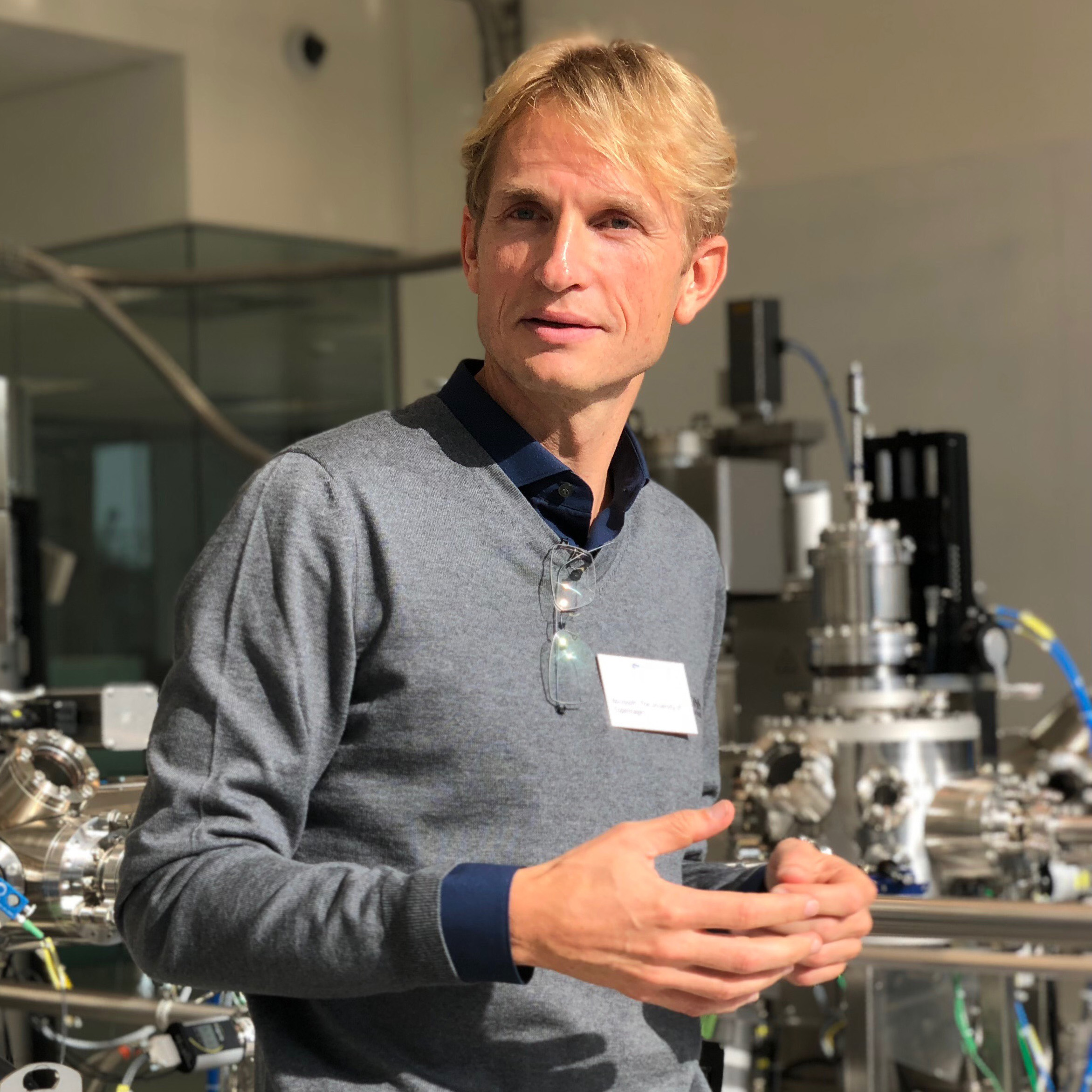

 Dr. Peter Krogstrup
Dr. Peter Krogstrup Abstract:
Quantum computing offers the possibility of tremendous computational advantages over conventional computers. However, to realize and fulfill this potential the fundamental problem of quantum state decoherence, i.e. loss of quantum coherence due to interaction with surroundings, need to be solved. Despite various hardware approaches and architectures are being pursued in competing labs, no existing platform have shown the quantum state stability (or coherence time) needed to provide robust qubit error correction required for large scale computation. One central challenge that needs to be solved in various qubit technologies and architectures relates to the disorder associated with the material interfaces.
I will discuss how epitaxial crystal growth methods can lead to well defined morphologies and interfaces between different crystals, which results in improved control of quantum electronic properties and quantum coherence. I’ll discuss the challenges and material requirements needed for realizing and eventually manipulating topological protected quantum states, states which has the potential as fault tolerant qubits.
Bio:
With a background as a professional musician, the path for Dr. Krogstrup to Scientific Director of Microsoft Quantum Materials Lab Copenhagen was an unconventional one and yet not wholly surprising when this was realized at the lab’s opening in 2018.
When Peter finds interest in something, simply scratching the surface on it is not enough. This was the case when he, at a relatively late age, began his study in Physics in 2004. In 2009, he achieved his Masters with a specialization in Materials Physics from the University of Copenhagen. In 2013, he defended his PhD thesis in “Dynamical Theory and Experiments on GaAs Nanowire Growth for Photovoltaic Applications” at the University’s Niels Bohr Institute in the Faculty of Science.
Following, he stepped into the role of Assistant Professor at Niels Bohr Institute’s Center for Quantum Devices (QDev), deepening his engagement in the world of Materials science. His passion in crystalline materials as relates to quantum physics was a steppingstone to his collaboration with Microsoft starting in 2015.
Peter’s innovative approach to the development of quantum materials has since evolved into him developing, establishing and leading the Microsoft Quantum Materials Lab Copenhagen, situated in Lyngby at the Microsoft Development Center Copenhagen (MDCC). Here, he leads a world-class dream team of mechanical engineers, materials scientists, and quantum physicists, working in close collaboration with Microsoft Quantum Lab Copenhagen researchers and students from the University of Copenhagen and the Technical University of Denmark.